My Friend Johan and I: Slices of a Transcendent Reality
BIOGRAPHIES, 27 Oct 2025
Antonio C. S. Rosa, Editor – TRANSCEND Media Service
24 Oct 2025 – Sartre wrote that “existence precedes essence,” meaning that humans are born and through free choices and actions create their own essence and meaning; life being an ongoing process of identity creation, “transcends,” goes beyond existence. Thus, “life transcends existence.” And according to Gandhi, conflicts are an integral part of that life.
Based on my association with Johan, I can further state that conflicts are an integral part of growth—spiritual growth—in our lives that went beyond merely existing.
I met Prof. Johan Galtung when I was an undergraduate at the University of Hawaii, Honolulu in 1986. He had a personal way of dealing with his students: at the end of each semester Johan would host a small reception in his house. That was a door for he and I to become closer. I hardly knew that I was getting a lifelong best friend, well-wisher, employer, and above all–a mentor.
At that time, I was dealing with a life-threatening addiction and Johan proved to be magnanimous, human and kind in dealing with the greatest conflict I faced in my personal life. He was not religious, but was fond of Buddhist doctrines and teachings. This perspective kept him around trying to do what he could to assist and offer me a helping hand. I know first-hand of his superior character, his humanity and empathy; I bear witness to it and this has been the strongest link in our relationship. I can avail clearly, with a deep sense of gratitude, the human value of his participation in my life—from 1986 to his passing in 2024.
It was with this sort of attitude that Johan approached the fields of peace and conflict studies at all levels, worldwide: personal, familiar, school (bullying), workplace, religious, national, civilizational as presented in his book, 50 Years, 25 Intellectual Landscapes Explored.
I remember once, at a beach in Alicante, Spain where he lived at the time, he turned to me and said that all those passersby enjoying the early afternoon sun with their families and pets would remind him of Louis Armstrong’s hit song, What a Wonderful World, that went like this:
“I see friends shaking hands
saying how do you do
they’re really saying, I love you.”
Such was the mental environment of the man who left the tools for the world to save itself from its denizens’ imperfections. For human beings to become truly civilized and not merely deceiving themselves and wishful thinking about being it.
When I left Honolulu for Lisbon in 1994, we lost contact. Then, in 2004, I casually googled Johan Galtung and found his phone and address in France. I called, his wife Fumiko answered the phone, and we reconnected–for good. Shortly thereafter I was translating one of his books to Portuguese: Transcend and Transform. And after that, another one: Reporting Conflict-An Introduction to Peace Journalism.
In 2004 I moved to Torino, Italy to be a full time Johan’s assistant, working from a borrowed space at the Centro Studi Sereno Regis. The rest is history, as they say. I traveled the world under his auspice and in 2008 Johan envisioned, and we implemented, the pioneer TRANSCEND Media Service-Solutions Oriented Peace Journalism of which I have the privilege to be the editor to this day. It has been almost half a century of a spiritually uplifting journey that forever changed my life and my destiny. No drama intended in this factual account of my reality with Johan Galtung—a man I learned to respect and love.
I once asked him two questions—among countless others—which I would like to share:
Antonio: What is your definition of an intellectual?
Johan: An intellectual is someone who transforms impressions into expressions.*********
Antonio: What is your definition of intelligence? (Johan’s IQ ranked him as a genius.)
Johan: Intelligence is the ability to multitask.
Johan wrote multiple books simultaneously, as I witnessed in his house in France–close to Geneva, Switzerland–with piles of papers carefully organized in a seemingly disorganized fashion. Some were finished in a short period of time, others took years for completion. The couple, Johan and Fumiko, had houses in Spain, France, USA, Norway and Japan, plus a trailer. They took care of all personally, never having a housemaid and taking pride on it. Fumi was a superb cook who ‘invented’ vegetarian dishes especially for (grateful) me.
He wrote an autobiography in Norwegian in 2006, with no translations: Johan without Land – On the Road to Peace through the World. In the epilogue, he mentions war as a dying phenomenon.
Other definitions: “guerrillas” as civilians against military; “state terrorism” as military against civilians–for example, the bombing of Dresden, or Hiroshima, or more recently the Israeli genocide in Gaza–; “terrorism” as civilian attacks on civilians; and “state terror” as new terrorist-based strategies, especially after 11 Sep 2001.
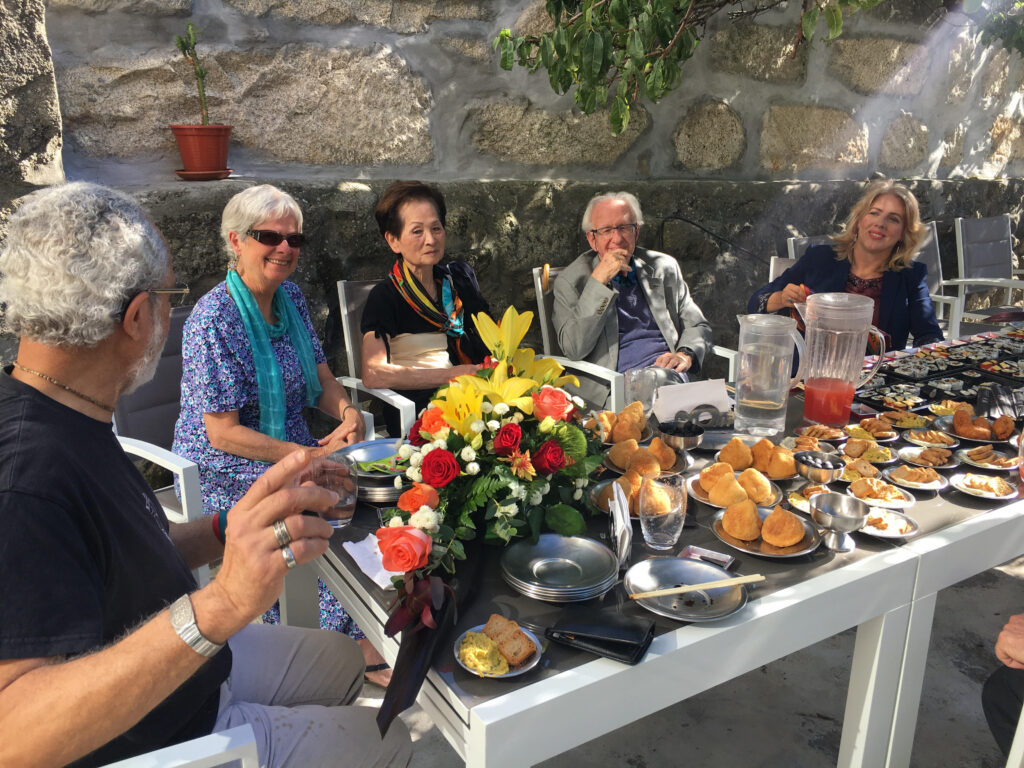
Celebrating Johan’s 87th birthday in Porto, Portugal, 2017: Antonio taking picture, Marilyn Langlois, Fumiko, Johan, and Prof. Maria da Luz from Minho University.
Johan was never awarded the Nobel Peace Prize in spite of being nominated practically every year since the 1950s. The reason: he was always very critical of Norwegian policies both domestic and foreign. The Nobel Peace committee in Oslo have been always composed of persons who disapproved or outright disliked him. He was a celebrity in Norway recognized on the streets but also hated by some others. Fast-forward to 2025: NATO’s Secretary General is the former Prime Minister of Norway.
Unfairly accused of antisemitism, around 2010 he was forced out of the World Peace Academy in Basel, Switzerland, and of the European Peace University in Stadtschlaining, Austria (both of which had been cofounded by him).
Another phrase that made him (in)famous in 2009:
“I love the American republic, and I hate the US empire.”
Simple, humble but also arrogant at times, demanding at other times, Johan was a prototype of the homo sapiens, a label mistakenly applied to humans as a whole. In my view, we are divided into some 190 warring tribes, technological savages who would better fit the label homo barbaricus. Johan visited all of these tribes in his lifetime to give them civilizing lectures, insights, teachings.
After Mikhail Gorbachev implemented his Perestroika and dissolved the Soviet Empire, sources from inside the Kremlin informed Johan, in Moscow, that his papers and writings were used as reference materials, showing him annotations and observations at the margins of documents.
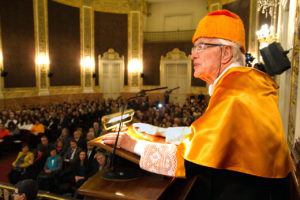
Prof. Johan Galtung receives Doctor Honoris Causa from the Complutense University of Madrid, 27 Jan 2017
Johan was not a founder of religion but his legacy will someday show that his approaches to conflict and peace studies will have the same impact on humanity that religions seek to have.
Concentrating on the positives, points of agreement, acknowledging contradictions/differences and bent on searching for solutions with which all parts could live, he focused on cultures and structures as hosts to violence–as the smoke; conflict being the fire that must be put out in order to eliminate the former.
Johan’s MO was loyalty, intellectual integrity, personal honesty. He lived practically for the world. To conclude, another intimate moment we shared:
One day, we were working together in his house in France and during a break, we went to pick up berries in the garden. As we did it, he disclosed that at the University of Hawaii, in the 80s, he felt helpless in trying to help me with the addiction problem, but waited, filled with compassion, for an opportunity to act. He quoted Buddhism as a major source of inspiration for him. Finally, that opportunity manifested and as a consequence I was OK, he was OK, we were OK. Together, sharing a moment of spiritual intimacy—going back to the opening paragraphs of this testimony. I learned to love him as a son, a disciple.
I had the privilege of coming across a Spiritual Master from India and a Material Master from Norway. They changed the quality of my earthly life for the better by pointing out to me positive new directions–pointing to the stars. I still endeavor to live up to their high standards of excellence as a human being.
Video with Marilyn Langlois, et al. [Rumble]. Click:
Conversation with Antonio Rosa (Johan Galtung in Memoriam)
________________________________________________
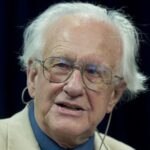 Johan Galtung (24 Oct 1930 – 17 Feb 2024), a professor of peace studies, dr hc mult, was the founder of TRANSCEND International, TRANSCEND Media Service, and rector of TRANSCEND Peace University. He was nominated for the Nobel Peace Prize numerous times and was awarded among others the 1987 Right Livelihood Award, known as the Alternative NPP. Galtung has mediated in over 150 conflicts in more than 150 countries, and written more than 170 books on peace and related issues, 96 as the sole author. More than 40 have been translated to other languages, including 50 Years-100 Peace and Conflict Perspectives published by TRANSCEND University Press. His book, Transcend and Transform, was translated to 25 languages. He has published more than 1700 articles and book chapters and over 500 Editorials for TRANSCEND Media Service. More information about Prof. Galtung and all of his publications can be found at transcend.org/galtung
Johan Galtung (24 Oct 1930 – 17 Feb 2024), a professor of peace studies, dr hc mult, was the founder of TRANSCEND International, TRANSCEND Media Service, and rector of TRANSCEND Peace University. He was nominated for the Nobel Peace Prize numerous times and was awarded among others the 1987 Right Livelihood Award, known as the Alternative NPP. Galtung has mediated in over 150 conflicts in more than 150 countries, and written more than 170 books on peace and related issues, 96 as the sole author. More than 40 have been translated to other languages, including 50 Years-100 Peace and Conflict Perspectives published by TRANSCEND University Press. His book, Transcend and Transform, was translated to 25 languages. He has published more than 1700 articles and book chapters and over 500 Editorials for TRANSCEND Media Service. More information about Prof. Galtung and all of his publications can be found at transcend.org/galtung
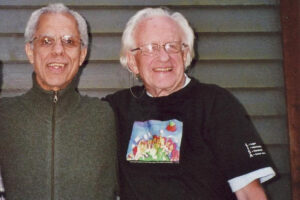 Antonio C.S. Rosa (at the right of Johan Galtung in this photo), born 1946, is founder-editor of the pioneering Peace Journalism website, TRANSCEND Media Service-TMS (from 2008) under Galtung’s inspiration and guidance. He is Johan’s assistant, Secretary of the International Board of the TRANSCEND Network for Peace Development Environment, and recipient of the Psychologists for Social Responsibility’s 2017 Anthony J. Marsella Prize for the Psychology of Peace and Social Justice. He completed the required coursework for a Ph.D. in Political Science-Peace Studies (1994), has a Masters in Political Science-International Relations (1990), and a B.A. in Communication (1988) from the University of Hawai’i. Originally from Brazil, he lives presently in Porto, Portugal. Antonio was educated in the USA where he lived for 20 years; in Europe-India since 1994. Books: Peace Journalism: 80 Galtung Editorials on War and Peace (editor) – Cobertura de Conflitos: Jornalismo para a Paz (from Johan Galtung, translation to Portuguese) – Transcender e Transformar: Uma Introdução ao Trabalho de Conflitos (from Johan Galtung, translation to Portuguese). TMS articles by Rosa HERE.
Antonio C.S. Rosa (at the right of Johan Galtung in this photo), born 1946, is founder-editor of the pioneering Peace Journalism website, TRANSCEND Media Service-TMS (from 2008) under Galtung’s inspiration and guidance. He is Johan’s assistant, Secretary of the International Board of the TRANSCEND Network for Peace Development Environment, and recipient of the Psychologists for Social Responsibility’s 2017 Anthony J. Marsella Prize for the Psychology of Peace and Social Justice. He completed the required coursework for a Ph.D. in Political Science-Peace Studies (1994), has a Masters in Political Science-International Relations (1990), and a B.A. in Communication (1988) from the University of Hawai’i. Originally from Brazil, he lives presently in Porto, Portugal. Antonio was educated in the USA where he lived for 20 years; in Europe-India since 1994. Books: Peace Journalism: 80 Galtung Editorials on War and Peace (editor) – Cobertura de Conflitos: Jornalismo para a Paz (from Johan Galtung, translation to Portuguese) – Transcender e Transformar: Uma Introdução ao Trabalho de Conflitos (from Johan Galtung, translation to Portuguese). TMS articles by Rosa HERE.
Tags: Antonio C. S. Rosa, Biography, Johan Galtung, Memoirs, TRANSCEND Media Service, TRANSCEND Method
This article originally appeared on Transcend Media Service (TMS) on 27 Oct 2025.
Anticopyright: Editorials and articles originated on TMS may be freely reprinted, disseminated, translated and used as background material, provided an acknowledgement and link to the source, TMS: My Friend Johan and I: Slices of a Transcendent Reality, is included. Thank you.
If you enjoyed this article, please donate to TMS to join the growing list of TMS Supporters.

This work is licensed under a CC BY-NC 4.0 License.
2 Responses to “My Friend Johan and I: Slices of a Transcendent Reality”
Write a comment to Kya Kim
We welcome debate and dissent, but personal — ad hominem — attacks (on authors, other users or any individual), abuse and defamatory language will not be tolerated. Nor will we tolerate attempts to deliberately disrupt discussions. We aim to maintain an inviting space to focus on intelligent interactions and debates.
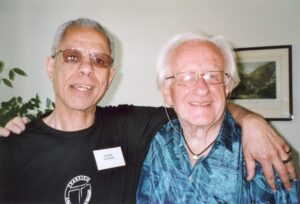
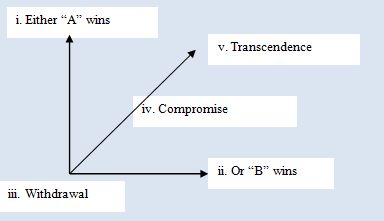
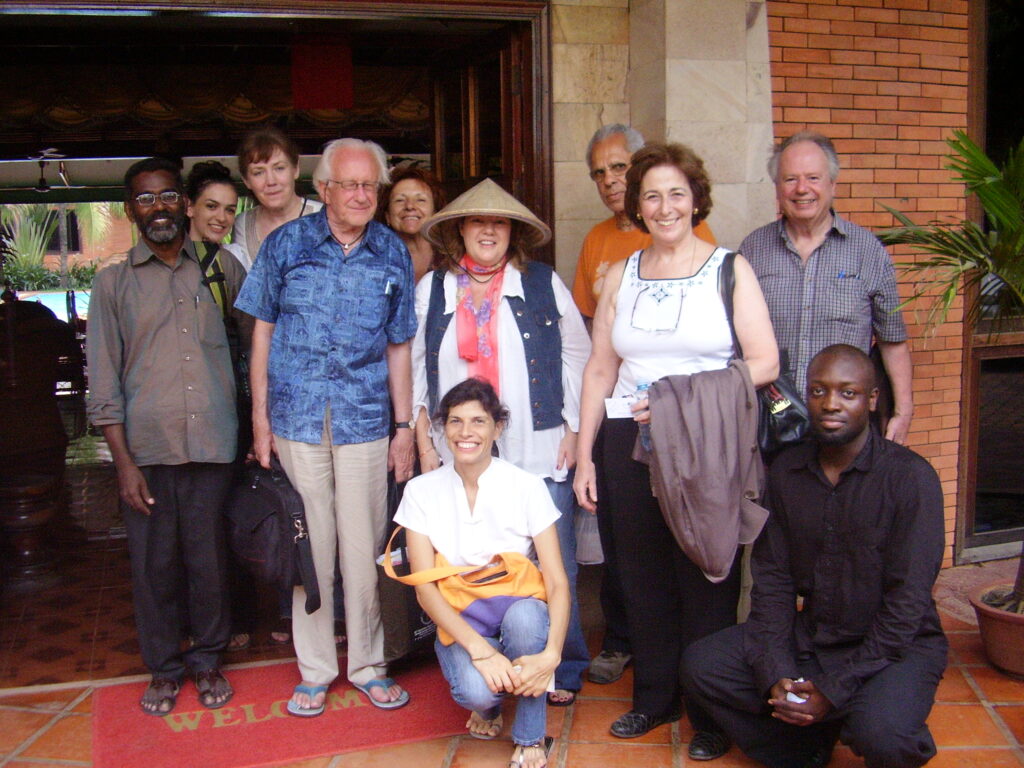
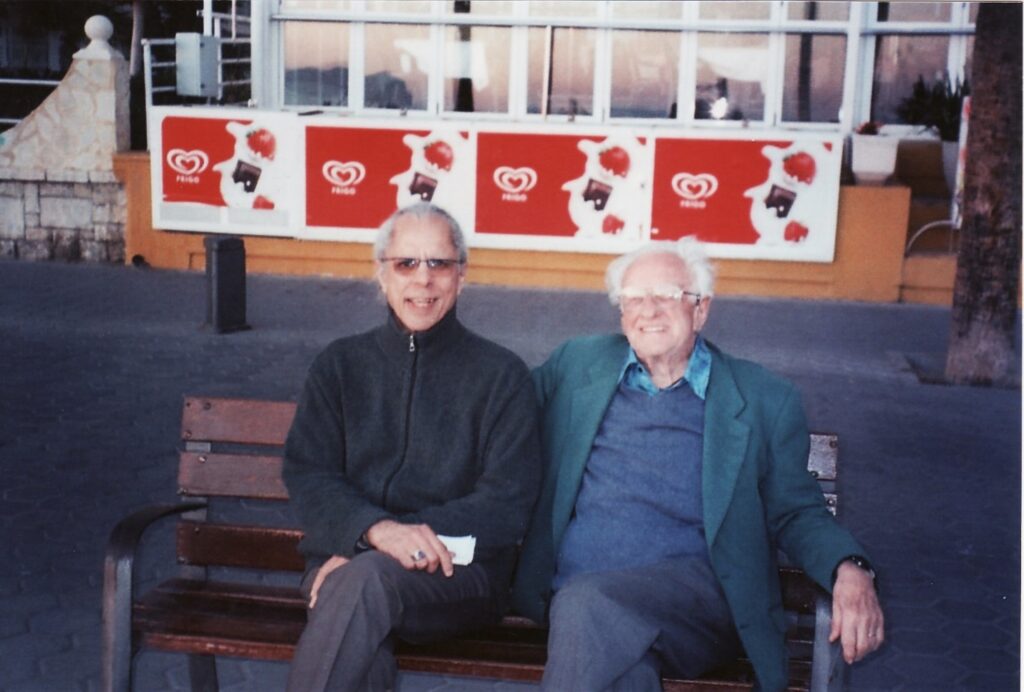
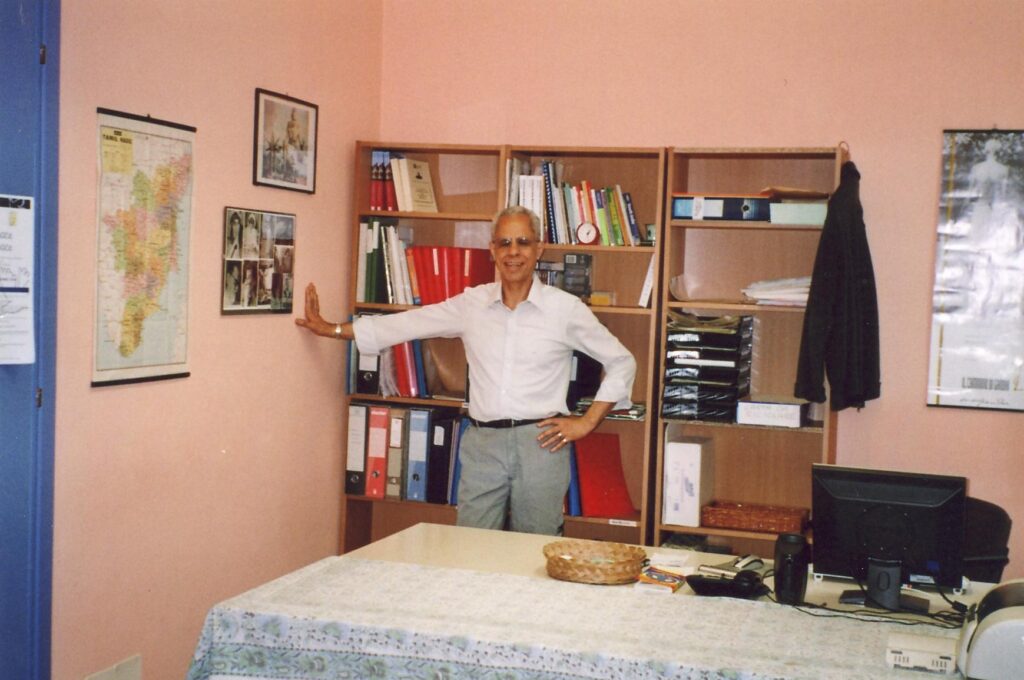
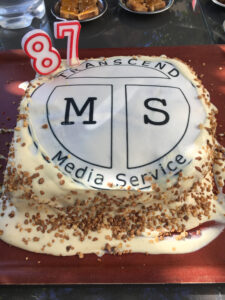
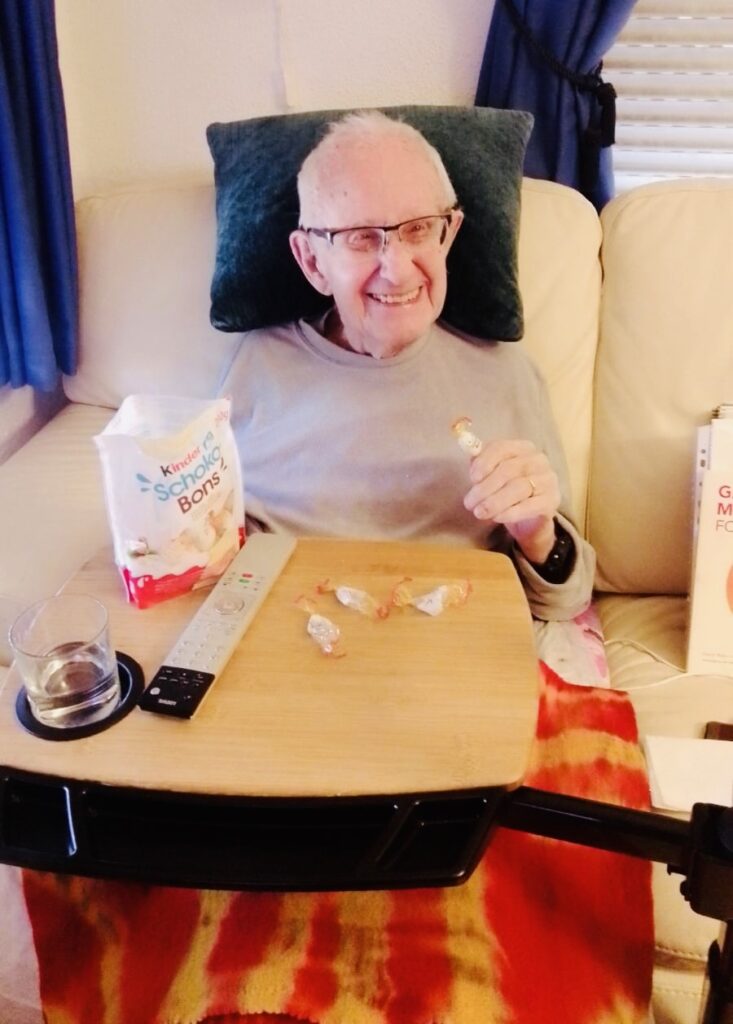
Dear Antonio,
Thank you for sharing your memories and reverence for Johan so eloquently. I enjoyed reading your words immensely. Johan’s love for humanity and his wisdom will remain a gem for generations to come, along with your offerings with TMS. I am grateful to you both for inspiring me, along with many others, our peace family.
Kya
My dear Kya, tks for your very kind words.
I must acknowledge that you are also one of the architects of TMS, being its first resident journalist in the very beginning, helping with website development and contributing with your expertise and goodwill in establishing the directions and editorial policies TMS would take, at our meetings with Johan in the European Peace University in Stadtschlaining, Austria, back in 2008. Truly unforgettable.
Thank you for that too, Kya. I know you remain active in Kyoto with the Peace Mask project along with your wonderful parents–to whom I send my regards: Robert and Myong Hee.
Take care.
Antonio